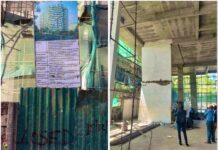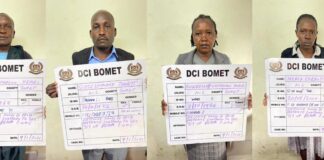The Judiciary has dismissed Captain Kung’u Muigai’s allegations that judges were bribed in the long-running case involving Benjoh Amalgamated Limited, Muiri Coffee Estate Ltd, and Kenya Commercial Bank (KCB).
In a statement on Wednesday, September 10, Judiciary Spokesperson Paul Ndemo said no credible evidence has ever been presented to substantiate accusations of judicial misconduct in the dispute.
Ndemo termed Muigai’s claims against judges as malicious and part of a ‘camouflaged agenda’.
“We categorically refute any suggestion of misconduct by judges who presided over these matters. No competent forum has ever found evidence of wrongdoing or corruption, and Mr. Muigai has not produced credible proof to substantiate his claims.
“Purporting to bring evidence after a number of the judges have long retired and others deceased, is not only ridiculous but reeks of bad faith, malice, and a camouflaged agenda,” read the statement in part.
The Judiciary spokesperson noted that allegations of judicial misconduct relating to the dispute were presented to the Judicial Service Commission (JSC), which reviewed and found no evidence of impropriety by any judge.
“It must be emphasized that dissatisfaction with judicial outcomes is not proof of misconduct. It is mischievous, to say the least, of Captain (Rtd) Muigai to allege that all the judges that handled his matters and made orders against his companies were bribed, and those that agreed with him were not corrupted,” Ndemo stated.
The dispute dates back to 1989 when KCB extended a loan facility to Benjoh Amalgamated Ltd, a company owned by Muigai.
The loan was secured by properties and a 443-acre coffee estate owned by Muiri Coffee Estate Ltd.
Following the default, the parties entered into a consent order in May 1992, in which Benjoh admitted indebtedness and committed to repay the sums by July 31, 1992.
However, the borrowers failed to meet the deadline, prompting KCB to enforce its securities.
The bank scheduled auctions for the property, but the borrowers filed successive suits to stop the sales.
“These suits were dismissed by various High Court benches on the basis that the issues had already been settled by the 1992 consent. On 10 March 1998, the Court of Appeal, then the apex court, in Civil Appeal No. 276 of 1997, confirmed that the consent order was valid and binding, and found no evidence of fraud or illegality. This determination was final and ought to have ended the litigation,” Ndemo stated.
According to Ndemo, the borrowers kept filing cases up to the Supreme Court, all of which were dismissed as res judicata, with courts affirming that litigation must come to an end.
“In Civil Application No. 40 of 2018, the Court of Appeal again dismissed a further court challenge by the borrowers on 11 May 2018. By then, the court noted that more than fourteen (14) suits had been filed over two decades without success, and characterized the continued litigation as vexatious and an abuse of the court process,” Ndemo added.
This comes after Muigai claimed that 17 judges, including some from the Supreme Court, were bribed to rule against his companies.
“I came to learn from a friend who was my classmate that the Supreme Court bench was bribed with $3.5 million (Ksh451million) and the money was paid in Jersey,” he claimed.
Muigai said he applied for a five-judge bench at the Court of Appeal to hear the dispute, but the appeal was again dismissed, allegedly after the judges received a $2.5 million bribe (Ksh322.5 million.
Muigai claimed to have witnesses to support his bribery allegations against the judges and wrote to the JSC, but his petition was dismissed.
“I was surprised that after a year, JSC has written to me, they didn’t call me to give evidence, but they have written to me and told me that the judges can use their judicial discretion,” he alleged.



















